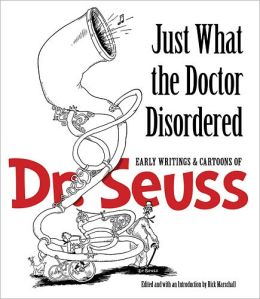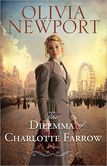Exciting things have been happening at WordServe Literary!
As the year comes to a close, we’re so very grateful that WordServe Authors released 83 books in 2012, and signed 80 book contracts for nearly 119 books to release off in the future.
 Julie Cantrell had the agency’s first New York Times Bestseller in many years with her book Into the Free. It also garnered a starred review in Publisher’s Weekly. A rarity.
Julie Cantrell had the agency’s first New York Times Bestseller in many years with her book Into the Free. It also garnered a starred review in Publisher’s Weekly. A rarity.
We had several books climb over the 100,000 copy mark:
* The Secret Holocaust Diaries of Nonna Bannister, written by Denise George and Carolyn Tomlin (Tyndale)
* The Devil in Pew Seven by Rebecca Alonzo, with James Pence (Tyndale)
* My Flight to Heaven by Dale Black (Bethany)
* Edge of Apocalypse by Tim LaHaye and Craig Parshall (Zondervan)
* Linspired (adult and YA book together) by Mike Yorkey (Zondervan)
And we’ve had several authors show up on national shows:
* Rebecca Alonzo on Dr. Phil (twice)
* Lauren Scruggs appeared on several shows in November at the launch of her book, Still Lolo.
These WordServe authors signed their FIRST BOOK CONTRACT in 2012:
* Anita Agers-Brooks (Leafwood)
* Leigh Ann Bryant (Authentic)
* Deb DeArmond (Leafwood)
* Rebecca DiMarino (Revell)
* Jan Drexler (Love Inspired)
* Michael Hidalgo (IVP)
* Heather James (Kregel)
* Amanda Jenkins (Tyndale)
* Caesar Kalinowski (Zondervan)
* Heather Larson, with David and Claudia Arp (Bethany)
* Tracie Miles (Leafwood)
* Jerry and Caroly Parr (Tyndale)
* Christina Powell (IVP)
* Rachel Randolph, with Becky Johnson (Zondervan)
* Tina Samples (Kregel)
* Lauren Scruggs (Tyndale)
* Amy Sorrels (David C. Cook)
* Mandy Stewarad (David C. Cook)
* Janalyn Voigt (Harbourlight)
* Jeremy & Jennifer Williams (Thomas Nelson)
* Tricia Williford (WaterBrook)
These WordServe authors had their FIRST BOOKS published through a traditional publishing house:
* Julie Cantrell, Into the Free (David C. Cook)
* Arnie Cole, Unstuck (Bethany)
* Katie Ganshert, Wildflowers from Winter (WaterBrook)
* Adam Makos, A Higher Call (Berkley Caliber)
* Jay Pathak/Dave Runyon, The Art of Neighboring (Baker)
* Zeke Pipher, Man on the Run (Howard)
* Lauren Scrubbs, Still Lolo (Tyndale)
* Helen Shores and Barbara Shores Lee, The Gentle Giant of Dynamite Hill (Zondervan)
* Jordyn Redwood, Proof (Kregel)
So all in all, we had lots to celebrate!
New January Releases
 Steve Addison, What Jesus Started.
Steve Addison, What Jesus Started.
******************************************************************************************
 Heather James, Unholy Hunger, her debut novel!
Heather James, Unholy Hunger, her debut novel!
******************************************************************************************
 Dr. Rita Hancock, Radical Well Being
Dr. Rita Hancock, Radical Well Being
******************************************************************************************
 Adam Makos, A Higher Call
Adam Makos, A Higher Call
******************************************************************************************
 Rick Marschall, Just What the Doctor Disordered
Rick Marschall, Just What the Doctor Disordered
******************************************************************************************
 Gilbert Morris, The River Palace
Gilbert Morris, The River Palace
******************************************************************************************
 Olivia Newport, The Dilemma of Charlotte Farrow
Olivia Newport, The Dilemma of Charlotte Farrow
******************************************************************************************
 Joe Wheeler, Great Stories Remembered #1, audio (eChristian)
Joe Wheeler, Great Stories Remembered #1, audio (eChristian)
******************************************************************************************
 Joe Wheeler, Stinky: The Skunk Who Wouldn’t Leave (Pacific Press)
Joe Wheeler, Stinky: The Skunk Who Wouldn’t Leave (Pacific Press)
******************************************************************************************
New WordServe Clients
Several new clients have joined the WordServe stable with Alice Crider as their point person, but we’ll report more on that next month.
New Contracts
Christina Powell signed with Intervarsity Press (IVP) for her first book. The book is tentatively titled Question your Doubts. It explores the many roots of doubt experienced by both believers and nonbelievers, providing a corresponding response of faith from the rare perspective of a Harvard-trained research scientist who is also an ordained minister. (SF)
What can we help you celebrate?









 “For to us a child is born, to us a son is given…” Isaiah 9:6
“For to us a child is born, to us a son is given…” Isaiah 9:6

